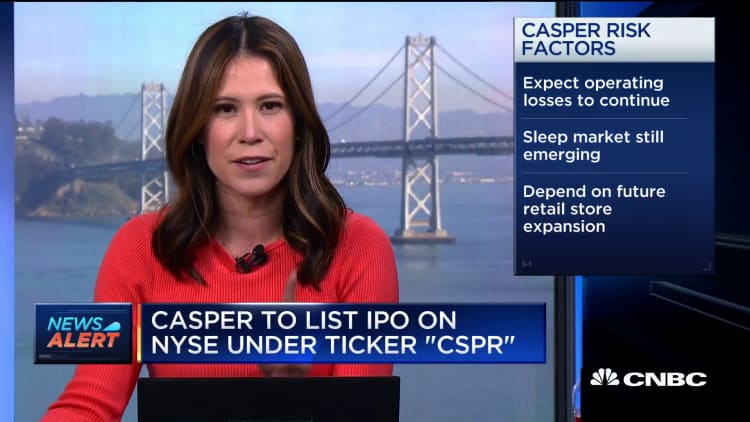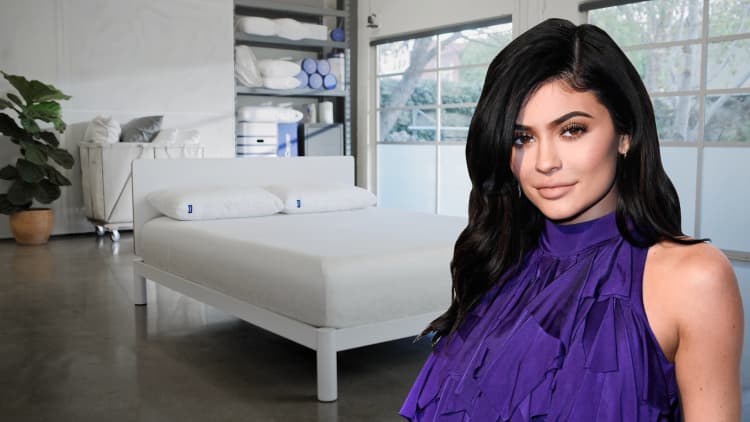Privately held mattress maker Casper Sleep on Friday filed the regulatory paperwork to take the company public on the New York Stock Exchange under the ticker symbol "CSPR."
Casper, which started out selling mattresses on the internet five years ago, said it lost $92.1 million in 2018 and $73.4 million in 2017, according to its stock registration statement with the Securities and Exchange Commission. It said it brought in net revenue of $357.9 million in 2018, of $250.9 million in 2017 and of $169.1 million in 2016.
Casper calls itself a "pioneer of the sleep economy" and values the global market at $432 billion. Casper's potential reach in North America and Europe targets a market valued at $67 billion of that, leaving it plenty of runway for growth, the company said. Casper operates in seven countries today and says it could grow to more than 20.

The company now sells pillows, sheets, night lamps and other bedroom accessories. It also has opened 60 of its own brick-and-mortar stores and has wholesale partners including Target.
Following its latest round of funding announced in 2019, Casper was valued at $1.1 billion. Some of the company's celebrity investors include actor Leonardo DiCaprio and rapper 50 Cent. Casper didn't disclose in its Friday filing how much money it plans to raise or the valuation it will seek to go public.
Casper said it could have at least 200 stores "over the coming years" in North America alone. Its newer stores span between 1,750 and 2,250 square feet, on average. The company also said in the filing that its direct-to-consumer sales in cities where Casper has a store have grown "over 100% faster on average than cities without a Casper retail store."
But the mattress market has exploded with new entrants, including Purple, Leesa, Nectar and Tuft & Needle. Tuft & Needle merged with Serta Simmons Bedding in 2019. Amazon and Walmart have both incubated their own mattress brands that they sell online. Casper in its filing lists Tempur Sealy International, Serta Simmons and Sleep Number as competitors.
The explosion of competition is one reason Casper has pivoted to say it wants to be more than just a mattress company. Its co-founder Neil Parik has said Casper aims to be the "Nike of sleep."
Not everyone is buying that, however.
"It's another company that loses more money as it grows and realizes it needs a new business model in order to compete in a crowded market," Michigan Ross School of Business professor Erik Gordon told CNBC. "Buyers are not going to go wild for it."
Casper said it spent $422.8 million on marketing from 2016 to Sept. 30 of last year.
It said it plans to grow by rolling out new products and services that include "digital apps, meditation, sleep programming and counseling."
Casper's initial public offering comes on the heels of a number of other e-commerce-focused businesses going public, including apparel retailer Revolve, the high-end secondhand marketplace The RealReal and online pet company Chewy.
Casper said that as of Dec. 31, it employed 597 people full time and 234 people part time.
Philip Krim has served as Casper's CEO since October 2013. The company's board of directors also includes Karen Katz, former Neiman Marcus CEO, and Dani Reiss, CEO of Canada Goose.
Read Casper's full S-1 filing here.
Casper was named No. 8 on CNBC's Disruptor 50 list in 2019.



